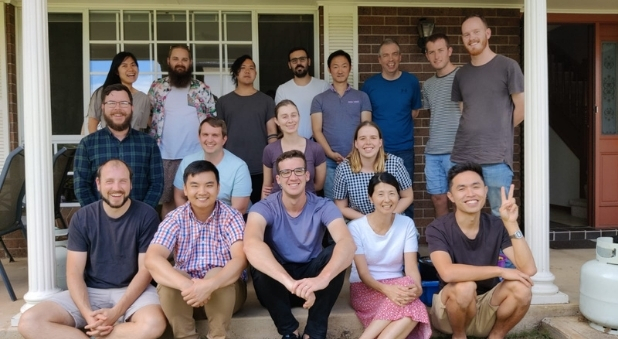Students at Moore Theological College dedicate a week every March to break into teams and participate in the evangelism efforts of other churches. This year’s mission included a new partnership with Evangelism and New Churches, giving one group of students a chance to observe and work alongside several church plants and learn from the challenges this unique group of churches face.
“We thought it would be a great opportunity to expose some of our students to some of the churches in our diocese which are thinking hard and creatively about how to establish the gospel in very different contexts,” says Dr Peter Orr, New Testament lecturer and the faculty member who oversaw the mission team. He recognises that these are not the only churches in the Anglican network thinking creatively about reaching others with the gospel, but that there was plenty for students to learn from this selection.
Serving and learning
The team visited churches that couldn’t be more different. They worked alongside churches at Albion Park Rail and Berkeley in the Illawarra, visited inner city churches such as Grace City and Living Water Redfern, and headed out west to spend time with Hope Leppington and Chester Hill.
Their time was filled with door knocking in different communities, participating in school scripture classes and assemblies, and hearing from various pastors about their approaches to engaging with their community and sharing the gospel.
Writing about their experience at Albion Park Rail, the team learned the principles that guided the church’s approach to mission and connecting with their neighbors.
“Over lunch we got to hear from Neil Scott, the senior minister. It was so valuable for us to hear Neil share his ministry insights from his time in the area and how it has come to bear fruit:
Going where there was a great gospel need and trusting God to provide for him and his family;
Listening well to learn about the people he was ministering to;
The value of being in the community (with schools as a hub) and building trust;
The principles behind their 1 to 1 Bible discipleship model for pastoral and training purposes.
“Thank God for how he has grown the church in a low-socioeconomic area, that in the brokenness of their lives they have a deep understanding of the gospel that brings forgiveness and salvation.”
Bread of Life
Another stand out experience for the team was engaging with the community in Berkeley alongside members of Berkeley Life Centre. The team spent the morning offering free bread to the locals, and were surprised by how open people were. On multiple occasions, they heard about the different ways people struggled with the concept of God, usually due to the evil and suffering they saw in the world or that they had experienced firsthand.
“Door knocking and food delivering [was a highlight],” says Mr Orr, who notes the team was encouraged greatly by “the joy that church members had in serving together.”
Walking away from a week of mission, the students had plenty of lessons to reflect on and many ways of approaching ministry and evangelism that they could draw on for the future.
“We have been hugely challenged as we’ve reflected on the different models of ministry,” the team reflected on the blog. “This week has opened our eyes to the different ways churches can do evangelism to reach their community. Please pray we’ll take the principles that we’ve learnt with us wherever we end up serving.”






















